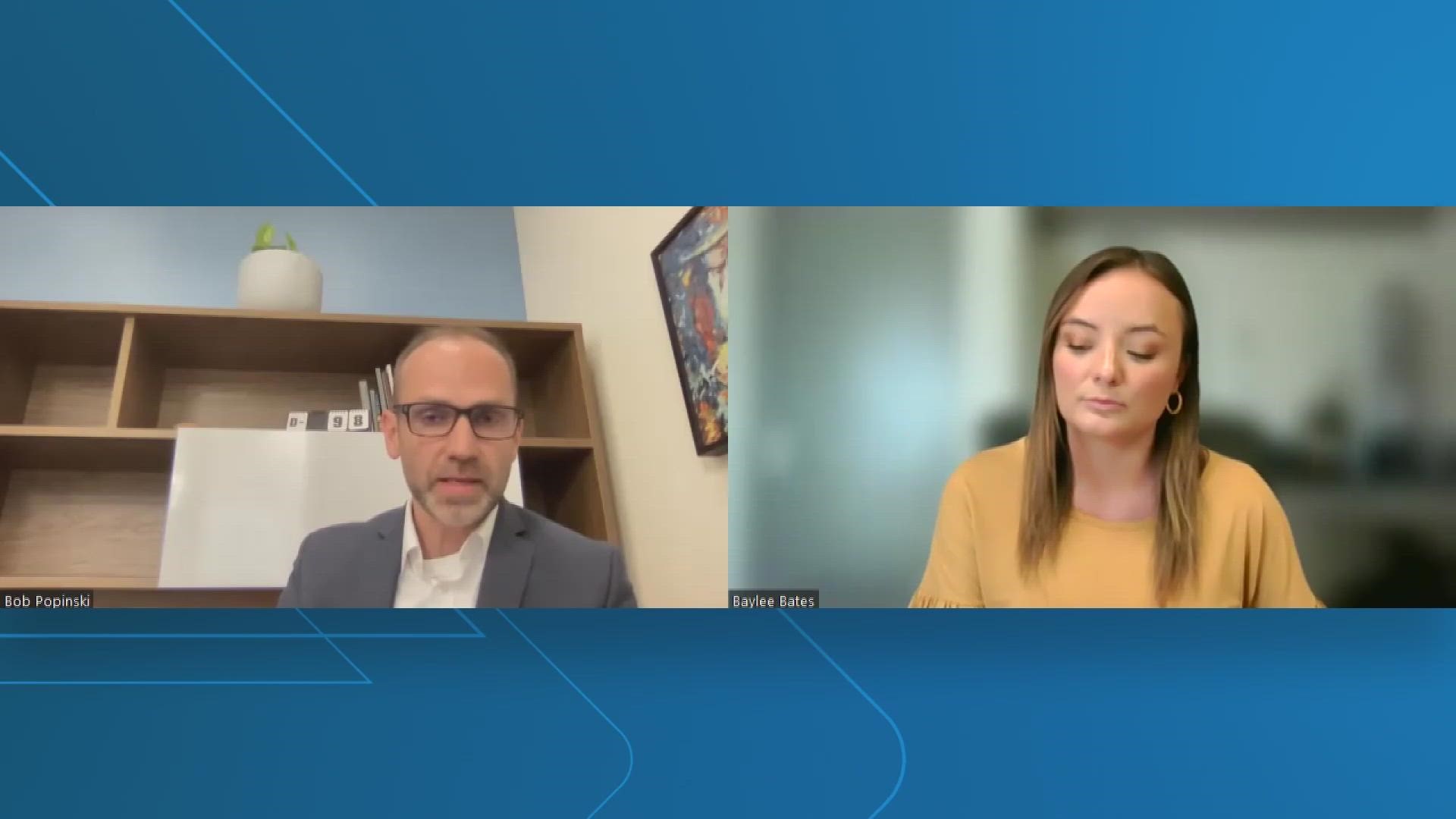TEXAS, USA — Texas Governor Greg Abbott is rallying across the state for a school choice policy. He wants to give parents state money to send their kids to schools outside of the state's public education system through education savings accounts or a school voucher.
"Under the school choice program, all public schools will be fully funded for every student the same way they are now," Abbott told a crowd in Temple Monday.
Organizations who oppose the proposed legislation have said the concept could cost public schools in the long run.
Senior Director of Policy for Raise Your Hand Texas Bob Popinski said now is not the time to be diverting money away from Texas public education.
"Right now, we're about $4,000 behind the national average on per pupil funding," he said. "We're in the bottom 10. So, before we even think about vouchers, we need to invest in our public schools."
Under the legislation, families that opt out of the state’s public education system would receive the average amount of money it costs Texas public schools to educate a child, which is currently about $10,000 a year, according to the Texas Tribune. The funds for the program could come from both taxpayer money and donations.
Popinski believes those funds shouldn't go toward entities without public accountability and transparency.
"In Texas, we have about 300,000 private school students, if you were to multiply that by the $10,000 -- that's a $3 billion program right away," he added. "Money going towards private schools that aren't held accountable for anything under our state's laws."
Popinski said parents should also worry about capacity at private schools and what happens if seats aren't available for students after they opt out of the public education system.
"Private school isn't responsible for taking a student with a voucher," he explained. "They can if they like, but they're not required to with any voucher program that's been filed or discussed."
There is concern from several groups who oppose the "school choice" policy on how it could impact rural schools.
Marlin Independent School District Superintendent Dr. Darryl Henson, who is also a member of the Texas Association of Rural Schools, said school choice is legislation they are monitoring and discussing.
Henson said the legislation could impact smaller or rural school districts budgets and that is something they are talking with lawmakers about.
"The financial ramifications of this are serious, understanding that depending upon the school district, six to eight students could actually mean a whole teacher salary, and a rural school district we are typically our biggest job creator," he said. "It's also important that we look at our public dollars, not going to go to private entities."
Henson said rural districts like his struggle with resources already and more choices in education could cause a larger strain.
School's budgets are based on attendance which stems from enrollment. The school choice policy could have students leaving public education which in turn would take away money from a school district.
"If we have a lower enrollment, it's going to have a direct impact on the funding that we have for our children," Henson added. "We still have to educate our children every single day and now in Texas, potentially we will now have to fund three types of schools, traditional ISD, charter schools and now potentially private schools."
Both Henson and Popinski believe parents should have rights and responsibilities to their child's education, but it doesn't necessarily have to be through school choice policies.
"As a leader we support choice and options for our students," Henson added. We just want to make sure that we have adequate funding to provide those choice and options within our local ISDS. Right now we have a proposition to where public dollars can go to private entities. Private entities that may not have the same level of accountability to the state, the grievance policies and of course that Texas Open Meetings Act. Is this school choice or schools choice, because every school system does not have to educate every child. We want for parents to know that as a local ISD, as the hub in the community, we are here to still provide great options and choices for every child that comes through our door."
"We don't want parental choice or parental empowerment or parental rights and responsibilities to be synonymous with vouchers," Popinski added. "We believe in parental rights and responsibilities, and the Texas law since 1995 there has been parental rights and responsibilities in code. Do we need to elevate that to let parents be aware of what their rights are? Absolutely, but that's not a voucher program and we just don't want those two to merge together and be tied together."
Both the governor and Lt. Governor Dan Patrick have said a school choice program is in their top priorities this legislative session.

